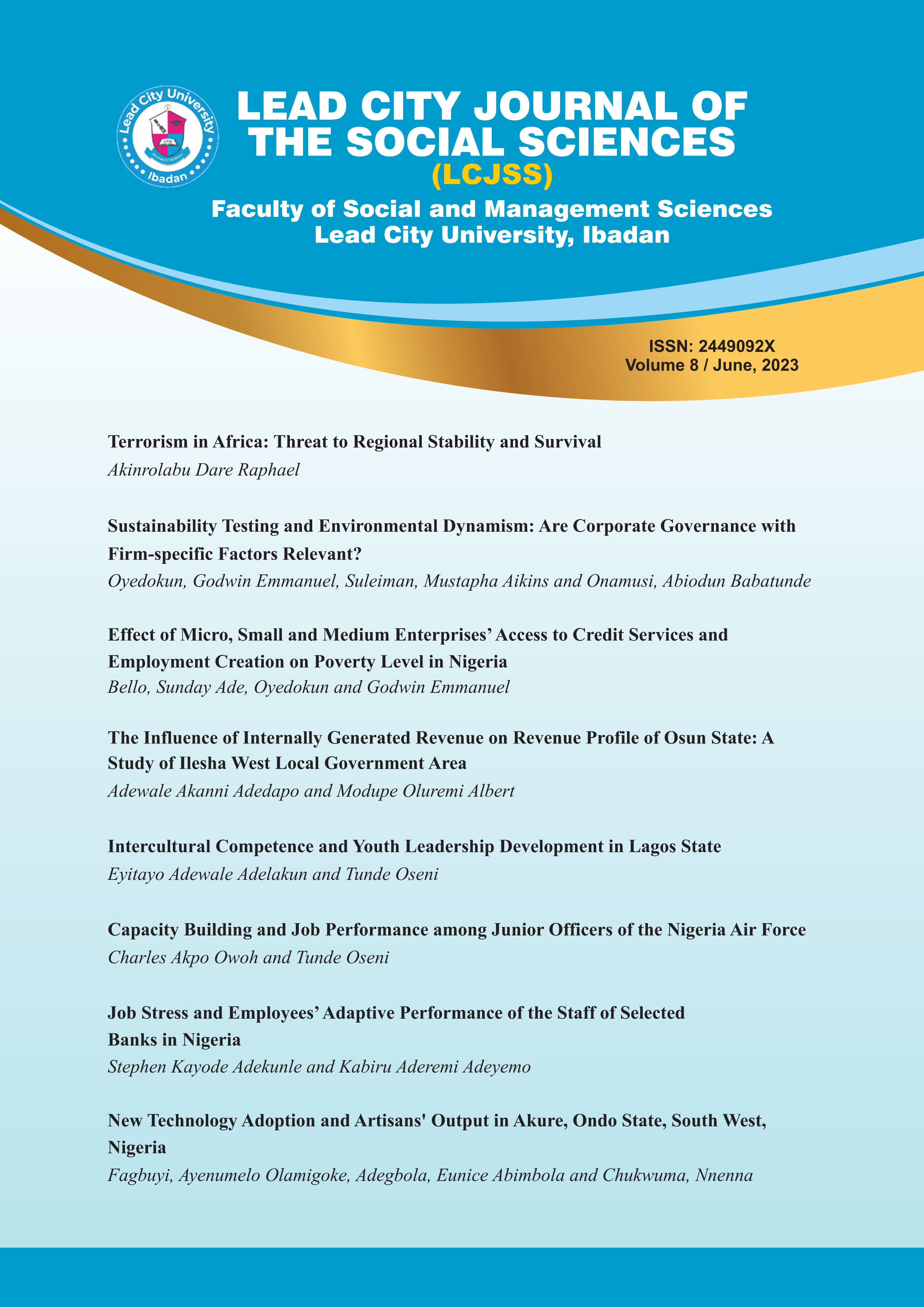Sustainability Testing and Environmental Dynamism:
Are Corporate Governance with Firm-specific Factors Relevant?
Keywords:
Environmental dynamism, Dynamic Capability theory, Firm-specific-factors, Manufacturing companies, sustainabilityAbstract
The turbulent environment within which the manufacturing sector operates in Nigeria has led to the closure of several manufacturing companies over the years. To sustain their operations in the face of the dynamic environment, corporate strategies have been inclined to shrink firm sizes and move to cost-advantaged locations outside Nigeria. The development raises the question of the relevance of
Corporate Governance (CG) and Firm-Specific Factors (FSF) in addressing the issues affecting the Sustainability of Fast-Moving Consumer Goods Manufacturers (FMCGMs) in Nigeria. Thus, the study examined the effect of CG and FSF on the Sustainability of FMCGMs in Nigeria and further interrogated the intervening effects of Environmental Dynamism (EVD) on the interaction between
CG, FSF, and the Sustainability of FMCGMs in Nigeria. The study is anchored on the Stakeholder Theory and Dynamic Capabilities Theory. The cross-sectional survey design was employed to obtain data from 432 employees of the FMCGMs in Nigeria. Data collected were analyzed using the PLSSEM to examine the three-way direct, mediation, and moderation hypotheses. Findings show that CG
2 and FSF have a significant effect on the Sustainability of the selected FMCGMs (Adj R =0.878, p=0.000); EVD Exerted a positive and significant moderating effect on the interaction between CG 2 and Sustainability (â =0.386; p=0.006, Q =0.290); EVD was also found to exert a positive and significant mediating effect on the interaction between FSF and Sustainability of the selected FMCGMs (â=0.396, t= 2.919, p= 0.004). The study recommends the need for FMCGMs to pay particular attention to their CG strategy to improve stakeholder loyalty, maintain a flexible FSF configuration, and continuously evaluate how the dynamic environment impacts achieving set targets
while establishing policies and actions that continue to align performance to achieving set goals.

